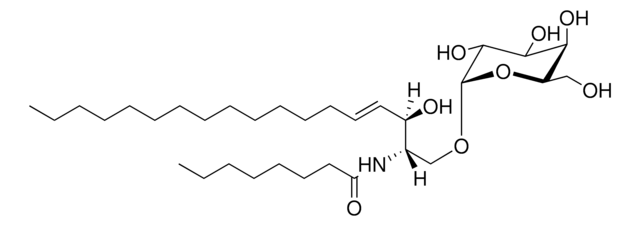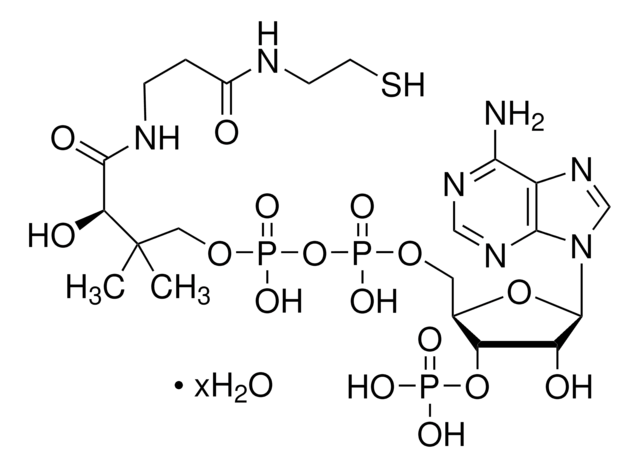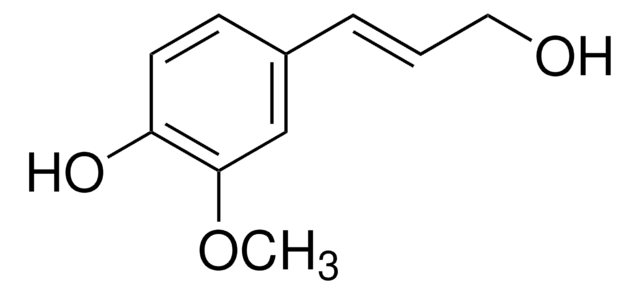860527P
Avanti
C24 Ceramide-1-Phosphate (d18:1/24:0)
Avanti Research™ - A Croda Brand 860527P, powder
Synonym(s):
N-lignoceroyl-ceramide-1-phosphate (ammonium salt)
About This Item
Recommended Products
form
powder
packaging
pkg of 1 × 1 mg (860527P-1mg)
manufacturer/tradename
Avanti Research™ - A Croda Brand 860527P
lipid type
sphingolipids
shipped in
dry ice
storage temp.
−20°C
SMILES string
[H][C@](/C=C/CCCCCCCCCCCCC)(O)[C@@]([H])(NC(CCCCCCCCCCCCCCCCCCCCCCC)=O)COP([O-])(O)=O.[NH4+]
General description
Application
Biochem/physiol Actions
Packaging
Legal Information
Storage Class Code
11 - Combustible Solids
Regulatory Listings
Regulatory Listings are mainly provided for chemical products. Only limited information can be provided here for non-chemical products. No entry means none of the components are listed. It is the user’s obligation to ensure the safe and legal use of the product.
JAN Code
860527P-BULK:
860527P-1MG:
860527P-VAR:
Certificates of Analysis (COA)
Search for Certificates of Analysis (COA) by entering the products Lot/Batch Number. Lot and Batch Numbers can be found on a product’s label following the words ‘Lot’ or ‘Batch’.
Already Own This Product?
Find documentation for the products that you have recently purchased in the Document Library.
Our team of scientists has experience in all areas of research including Life Science, Material Science, Chemical Synthesis, Chromatography, Analytical and many others.
Contact Technical Service








